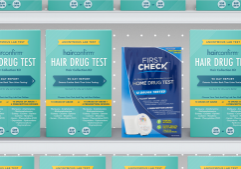Help For Parents Dealing With Teenage PCP Use
Phencyclidine or PCP is often used in conjunction with cigarette smoking and while this isn’t one of the most prevalent drugs used by teens, even short-term use can have devastating long-term effects. This article will help parents recognize PCP use, understand its dangers and know what to expect if their child is using.
Sign and Symptoms of Phencyclidine Use
The main effect of using PCP is anesthesia. However, there are several signs and symptoms that are associated with PCP use.
- Amnesia
- Blank stare
- Depersonalization or feeling of detachment
- Euphoria
- Feelings of impending doom
- Hallucinations
- High blood pressure
- Immobility
- Loss of balance and coordination
- Numbness in the arms and legs
- Rapid heartbeat
- Rapid, involuntary eye movements
- Sedation
- Sense of invulnerability
- Sound, image, and body distortion
- Slurred speech and other speech difficulties
Other symptoms may show up in a person who has used PCP over a long period of time, such as:
- Amnesia, or memory loss
- Anxiety
- Chills and sweating
- Coma
- Damage to the skeletal muscles, known as rhabdomyolysis.
- Death
- Delusions
- Depression
- Dizziness, nausea, and vomiting
- Impaired memory
- Inability to speak
- Inability to think clearly
- Irregular heartbeat and low blood pressure
- Isolation and withdrawal
- Reduced breathing rate
- Rigid muscles seizures
- Stuttering
- Suicidal thoughts
Health Effects and Dangers of Using PCP
Taking PCP for a long time may have a negative impact on the user’s health, and may lead to the following:
- Seeing things that are not present
- Hearing things that are not there
- Delusions of grandeur with an inflated sense of importance
- Higher blood pressure and heart rate
- Breathing problems
- Raised body temperature
- Anxiety, panic, and feeling extreme worry
PCP is highly addictive, and its use often leads to psychological dependence, cravings, and compulsive PCP-seeking behavior. PCP users were reported to have memory loss, difficulty with speech and learning, weight loss, and depression. These symptoms can persist up to a year after using PCP.
The drug’s sedative effects can cause interactions with the other CNS depressants, such as benzodiazepines and alcohol. Anyone who takes PCP with the mentioned depressants is likely to suffer from a coma or an accidental overdose.
The effects of PCP at high doses may also resemble symptoms of schizophrenia. Young people who abuse phencyclidine are particularly at risk because even moderate use can negatively affect the hormones responsible for normal growth and development. This may stunt learning abilities.
There are many cases of PCP users who have been brought to emergency rooms because of the extremely unpleasant psychological effects of PCP or due to overdose. PCP users in hospitals are often violent or suicidal, and can be a threat to themselves and to others. It is recommended that these patients be kept in a calm environment and not left alone.
PCP Use Diagnosis
Taking PCP for quite some time may compel the user to take more, just to achieve the desired “unusual high”. As a result, the user will take in more doses frequently, which may lead to physical and psychological dependence.
Overdose is likely to happen. If this is not stopped, as mentioned earlier, it may lead to coma or death.
Anyone who is seen to have manifested such symptoms should be immediately sent to the hospital for proper medical care.
What is Phencyclidine (PCP)?
Phencyclidine is a dissociative hallucinogen that was developed in the 1950s with the primary intention of using it as an intravenous anesthetic under the brand name Sernyl. The drug produces a trance-like state, which, according to patients who were given this drug, gave them an “out-of-body” experience. Phencyclidine is also commonly known as “angel dust”.
In the 1960s, medical professionals discontinued its use when they noticed that patients who were in surgical recovery manifested unlikely signs such as being irrational, restless, and panicky. Some of them also experienced severe hallucinations.
Today, PCP is considered an illicit drug in which it is no longer being used for medicinal purposes. PCP is listed as a Schedule II drug by the US Drug Enforcement Agency.
These days, this controlled substance is manufactured in clandestine laboratories. It comes in different forms such as capsule, tablet, liquid, and powder.
PCP is soluble in both water and alcohol. It has a bitter taste, and so spraying it on leafy items such as mint, parsley, and marijuana makes it more convenient to be smoked.
PCP may be administered in various ways such as injecting, snorting, or ingesting in liquid form. A phencyclidine drug experience will normally last between 4-6 hours. The length of the “unusual high” is based on the potency and amount of PCP taken. PCP is commonly used in conjunction with marijuana, methamphetamine or LSD.
Reasons for Abuse
Using any kind of illegal substance boils down to similar reasons. For teens, being in a stage where they want to uphold self-expression and personal identity, taking illegal drugs has become their means of acceptance in a group. Some teens may feel unwanted by their friends and families, leading them to turn to drugs. Teen rebellion against their parents may have led some of them to take drugs.
For others, they want to be recognized as adults, and would like to experience the independence of adults at such a young age. A huge influence on these teens when it comes to drug use include the following:
- Parents who are using drugs
- Celebrities who are infamous for drug use
- Movies and TV shows that glorify drugs as something “cool”
On their part, adults may use drugs to feel that they belong to a group, and be seen as “hip and cool”. In addition, some adults have reportedly said that taking drugs has become their means of relaxation after a long day at work. Although this particular intention is good, frequent and long-term drug use may get them into trouble.
After some time of taking illegal substances, users may get hooked, leading them to become drug dependents.
PCP and the Brain
The use of PCP can affect multiple neurotransmitter systems in the brain. It inhibits the reuptake of dopamine, norepinephrine, and serotonin.
PCP use can also inhibit the action of glutamate by blocking NMDA receptors. These NMDA receptors are responsible for pain sensations, learning and memory functions, and emotions.
When normal interaction is interrupted, these receptors allow the brain to disconnect from normal sensory experiences. As a result, you will see PCP users having their own small world, detached from reality. Therefore, when PCP is taken in higher doses, it will excite these receptors.
A dose of 5-10 milligrams and 10 mg have been reported to cause a lethargic effect. The effects are felt within 30-60 minutes after it has been orally ingested. Smoking it can take effect almost instantaneously, with the immediate effects lasting for about 4-6 hours.
However, returning to the normal state can take up to 24 hours. While the heightened effect of PCP can be felt for less than 6 hours, there may still be a moderate effect of the substance, making it almost impossible to have a normal conversation with the user.
Street Names
It is common among illicit substances to take various names to prevent authorities from tracking down dealers and users. PCP is known for various street names like:
- Angel dust
- Cliffhanger
- Embalming fluid
- Goon dust
- Happy Sticks
- Hog
- Kools
- Lethal weapon
- Ozone
- Peter Pan
- Rocket fuel
- Trank
- Wack
Combining PCP with other drugs has become common practice. Drugs likely to be combined with PCP include MDMA, formaldehyde, mescaline, ketamine, LSD, THC, and methamphetamine.
PCP street names for combination varieties go by:
- Green kryptonite
- Loveboat
- Orange Pokemon
- Purple teardrops
PCP street names combined with marijuana or tobacco are known as:
- Dipper
- Fry
- Illy
- Waters
- Wets
- Super grass
- Lovelies
- Killer joints
Drug Testing
To be certain if an individual is using illicit substances, a drug test can be performed. Drug tests can be performed using the following:
- Hair
- Blood
- Saliva
- Sweat
- Urine
Detecting PCP in your system relies heavily on the type of test.
- Urine tests can detect PCP after 4-6 hours and for up to 7-14 days.
- Blood tests are best done within 1-4 hours since plasma levels peak during that time. Blood tests are often done in an emergency room setting.
- Hair tests can detect PCP within 5-10 days after use and for up to 90 days.
- Saliva tests can detect PCP within 5-10 minutes of use and for up to three days.
Hair analysis has been proven to be more effective than drug testing in identifying low-level drug use over an extended period of time since these are normally out of the bloodstream within 3-7 days.
How is hair testing done?
After a substance is ingested, whether orally, smoked, snorted, or injected, metabolites are produced as the drug is processed by the human body. As these drugs and metabolites circulate in the bloodstream, they enter and nourish the hair follicle and are then inserted into the hair strand.
Hair testing is done by cutting at least 1.5 inches of hair from the scalp. It is said that the hair grows 0.5 in every month. With that length, it is easier to estimate how long the last intake of PCP occurred.
A standard screen with GC/MS confirmation requires 40+ milligrams of hair or approximately 50 – 70 strands that are up to 3.9cm (or 1.5 inches) in length. The thickness and pigment color of different types of head hair (thick black vs. thinning gray) is the basis of this variation.
PCP Withdrawal and Treatment
PCP users who are sent to rehabilitation centers for treatment will need to undergo detoxification to slowly take out all traces of the illicit drug from their system. During this process, the individual may experience unfavorable signs and symptoms, which may be managed by taking other medications.
As the individual progresses with the detoxification process, psychological therapy is also initiated to help the individual identify the cause of addiction. Hopefully, the person will come to a point wherein he/she wants to solve the issues concerning the addiction.
The success of the treatment also depends on how the individual is accepted by his/her family. Therefore, it is also equally essential that the family is involved with the speedy recovery of the individual. That way, the recovering addict can get back to his/her normal life.
Final Word
We often hear how some individuals blame the government for not exerting enough effort in preventing illicit drugs from spreading and continuously affecting so many lives. However, we should also realize that we also need to take part in educating others on what illicit drugs can do to us. We should also highly encourage teenagers to get themselves involved in other worthwhile activities instead.
The demand for phencyclidine and other illicit substances continues to rise. This has reached an alarming point where the younger generations are getting hooked in different kinds of illegal substances with the thinking that it is not harmful and it could become a means of their escape from reality. However, by reading up about phencyclidine, we can begin to understand and let more people know about the risks involved in using the substance.
Support
Ordering
About Us
Connect
Confirm BioSciences.
© 2019 Confirm BioSciences, Inc.
All Rights Reserved. See our Terms & Conditions and Private Policy.



